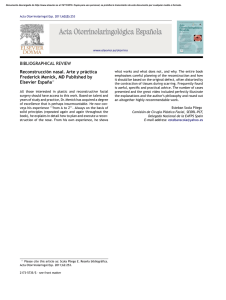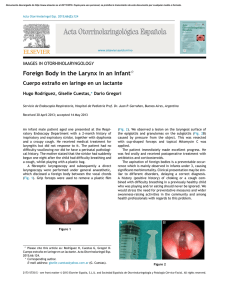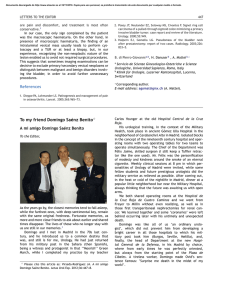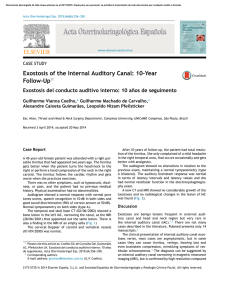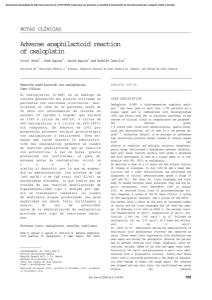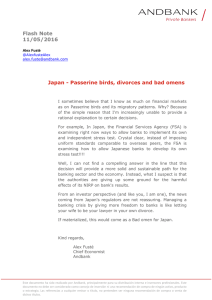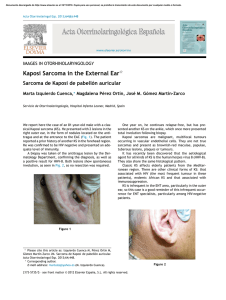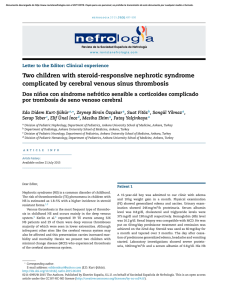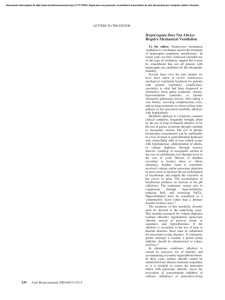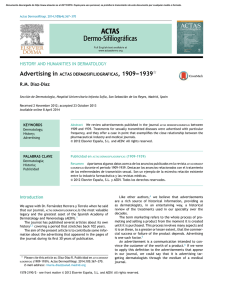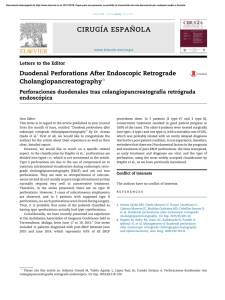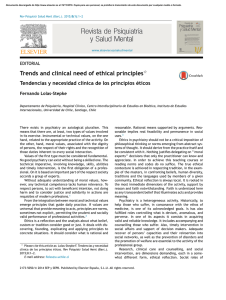Osteoma of the Internal Auditory Canal
Anuncio
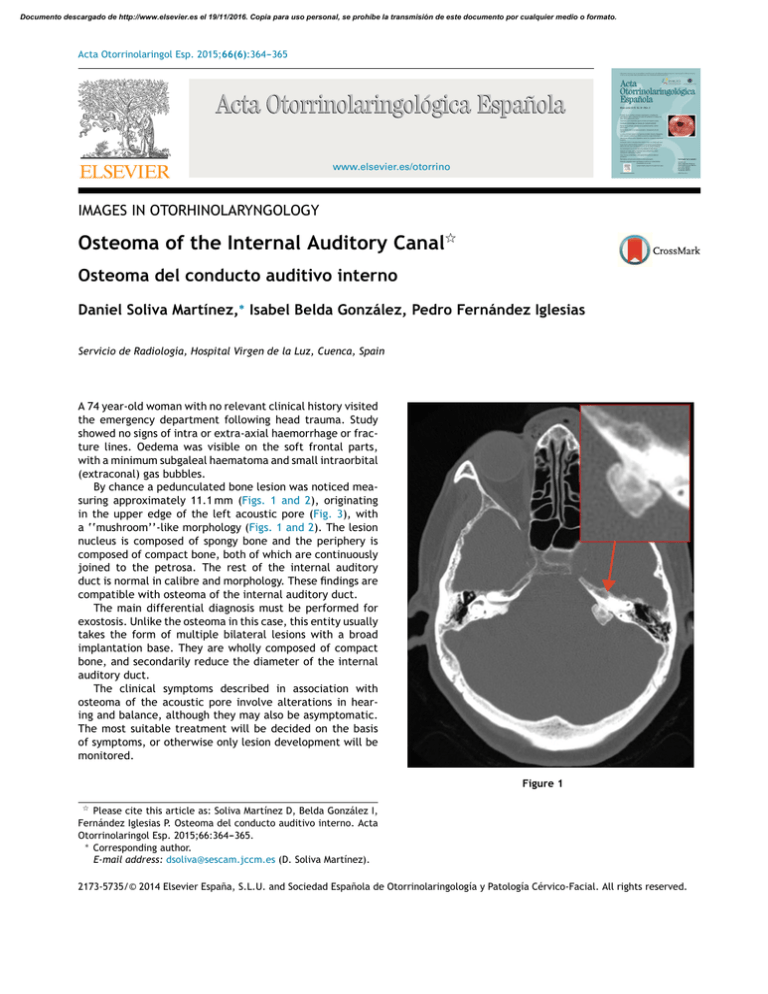
Documento descargado de http://www.elsevier.es el 19/11/2016. Copia para uso personal, se prohíbe la transmisión de este documento por cualquier medio o formato. Acta Otorrinolaringol Esp. 2015;66(6):364---365 www.elsevier.es/otorrino IMAGES IN OTORHINOLARYNGOLOGY Osteoma of the Internal Auditory Canal夽 Osteoma del conducto auditivo interno Daniel Soliva Martínez,∗ Isabel Belda González, Pedro Fernández Iglesias Servicio de Radiología, Hospital Virgen de la Luz, Cuenca, Spain A 74 year-old woman with no relevant clinical history visited the emergency department following head trauma. Study showed no signs of intra or extra-axial haemorrhage or fracture lines. Oedema was visible on the soft frontal parts, with a minimum subgaleal haematoma and small intraorbital (extraconal) gas bubbles. By chance a pedunculated bone lesion was noticed measuring approximately 11.1 mm (Figs. 1 and 2), originating in the upper edge of the left acoustic pore (Fig. 3), with a ‘‘mushroom’’-like morphology (Figs. 1 and 2). The lesion nucleus is composed of spongy bone and the periphery is composed of compact bone, both of which are continuously joined to the petrosa. The rest of the internal auditory duct is normal in calibre and morphology. These findings are compatible with osteoma of the internal auditory duct. The main differential diagnosis must be performed for exostosis. Unlike the osteoma in this case, this entity usually takes the form of multiple bilateral lesions with a broad implantation base. They are wholly composed of compact bone, and secondarily reduce the diameter of the internal auditory duct. The clinical symptoms described in association with osteoma of the acoustic pore involve alterations in hearing and balance, although they may also be asymptomatic. The most suitable treatment will be decided on the basis of symptoms, or otherwise only lesion development will be monitored. Figure 1 夽 Please cite this article as: Soliva Martínez D, Belda González I, Fernández Iglesias P. Osteoma del conducto auditivo interno. Acta Otorrinolaringol Esp. 2015;66:364---365. ∗ Corresponding author. E-mail address: dsoliva@sescam.jccm.es (D. Soliva Martínez). 2173-5735/© 2014 Elsevier España, S.L.U. and Sociedad Española de Otorrinolaringología y Patología Cérvico-Facial. All rights reserved. Documento descargado de http://www.elsevier.es el 19/11/2016. Copia para uso personal, se prohíbe la transmisión de este documento por cualquier medio o formato. Osteoma of the Internal Auditory Canal Figure 2 365 Figure 3
